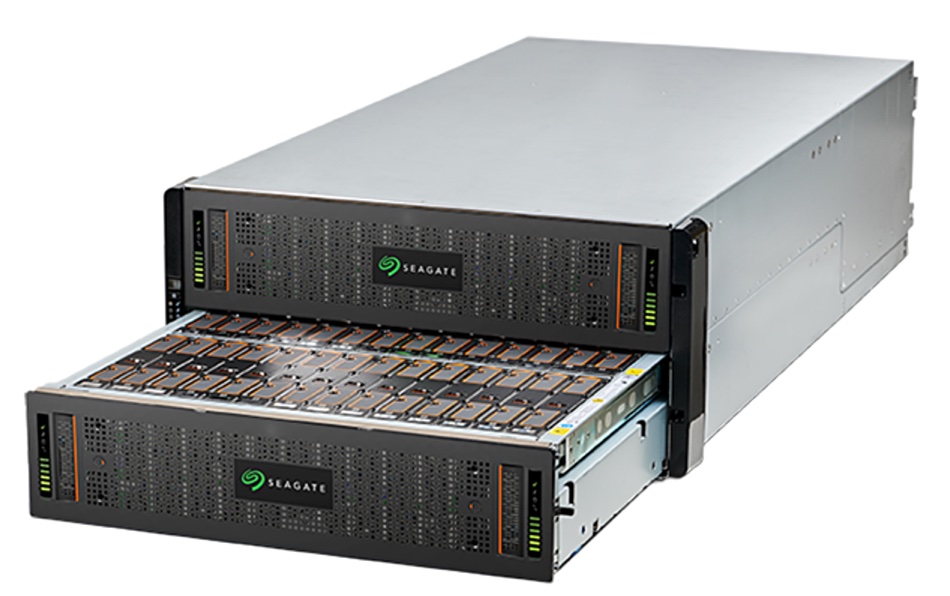Seagate is selling its Exos AP drive arrays through StorONE, a software-defined storage startup. This takes the company into direct competition with OEMs such as Dell EMC, Hitachi Vantara, HPE, IBM and NetApp , which use Seagate disk drives in their arrays and filers.

“Seagate’s Exos AP 5U84 Platform when combined with StorONE is an ideal solution for data centers of all sizes trying to consolidate workloads and reduce storage footprint,” said Gal Naor, CEO, and Co-founder of StorONE. “The Application Platform solution allows us to showcase our investments in the efficient utilisation of storage hardware and our next-generation hybrid technology.”
The Exos AP 5U84 is a Seagate-built 5 rack unit, dual controller array with 84 x 3.5-inch drive bays. StoreONE installs its S1: Enterprise Storage Platform software in this box to provide an active:active storage array delivering over 200,000 IOPS, and more than 1PB of capacity for under $175,000. A 1.48PB configuration uses 70 x 18TB Exos disk drives for capacity, and 14 x 15.36TB SSDs for random IO performance heft while a 1.4PB config uses 216TB Exos disks.
StorONE will also sell you a smaller, 106TB hybrid system, based on Seagate’s 2RU, 12-slot AP 2U12 array. This is priced at $36,000.

Seagate is making quite the push behind AP 5U84, last week announcing Lyve Cloud, an object storage services based on the system that resides in Equinix co-location centres in the USA.
The company is also keen to counter some analyst views that SSDs are taking over from nearline disk drives. The Seagate-StorONE announcement declares: “Mainstream data centres require affordable high-performance and high-capacity. Many storage vendors have left these organisations behind, even though they represent most data centres in the world.”
That’s ‘left behind’ in the sense that these storage vendors are moving to all-flash, SSD arrays.
A disadvantage of disk drives is that high capacity drives can take 24 hours or more to be rebuilt in a RAID scheme after a failure. StorONE’s vRAID technology rebuilds failed drives in under two hours, the companies say, without specifying a capacity, .
In October 2020 StoreONE said it could rebuild a 16TB drive in under five hours, and a failed SSD in three minutes.








